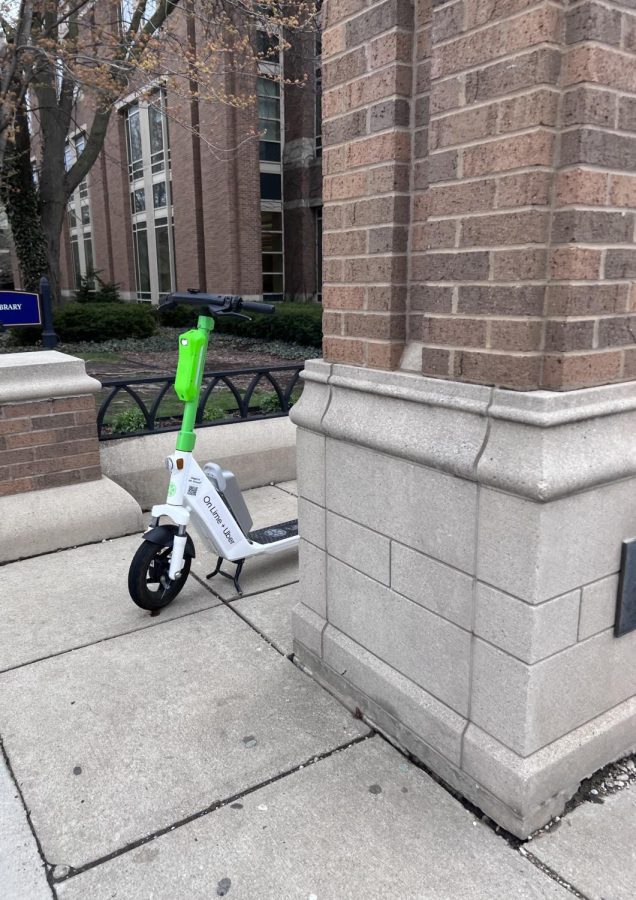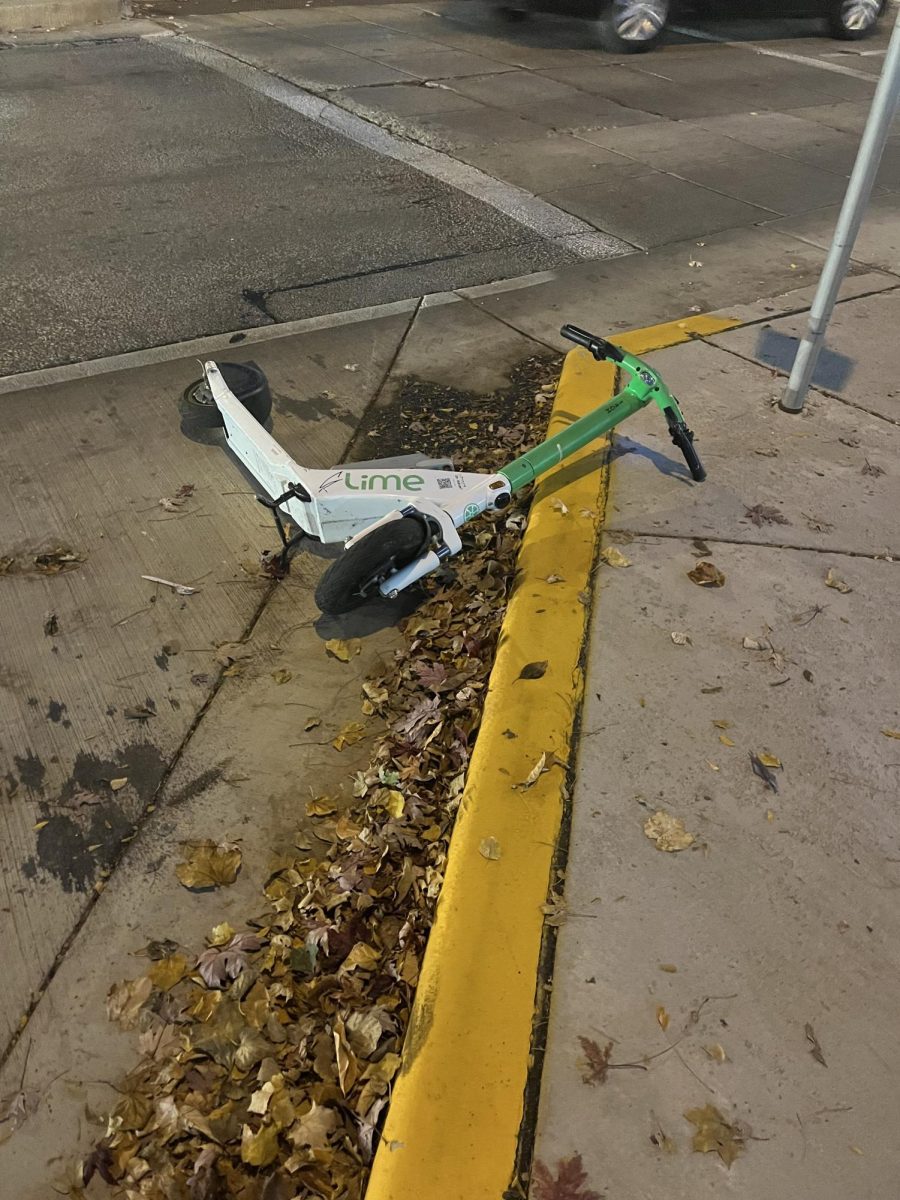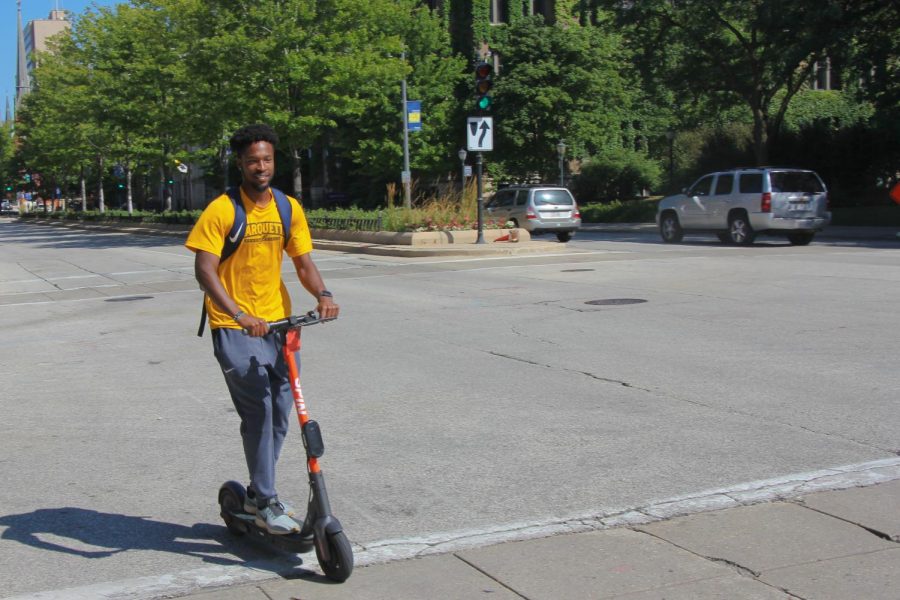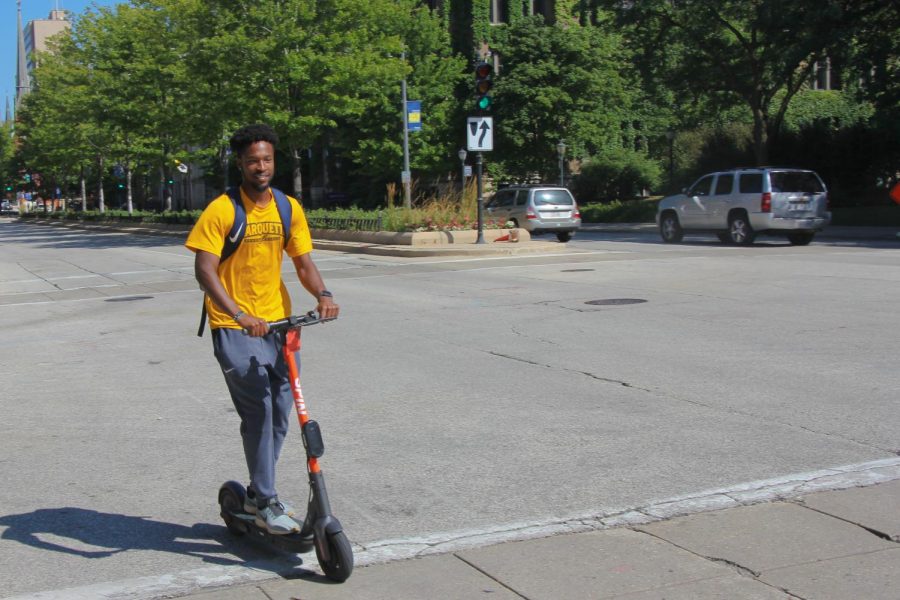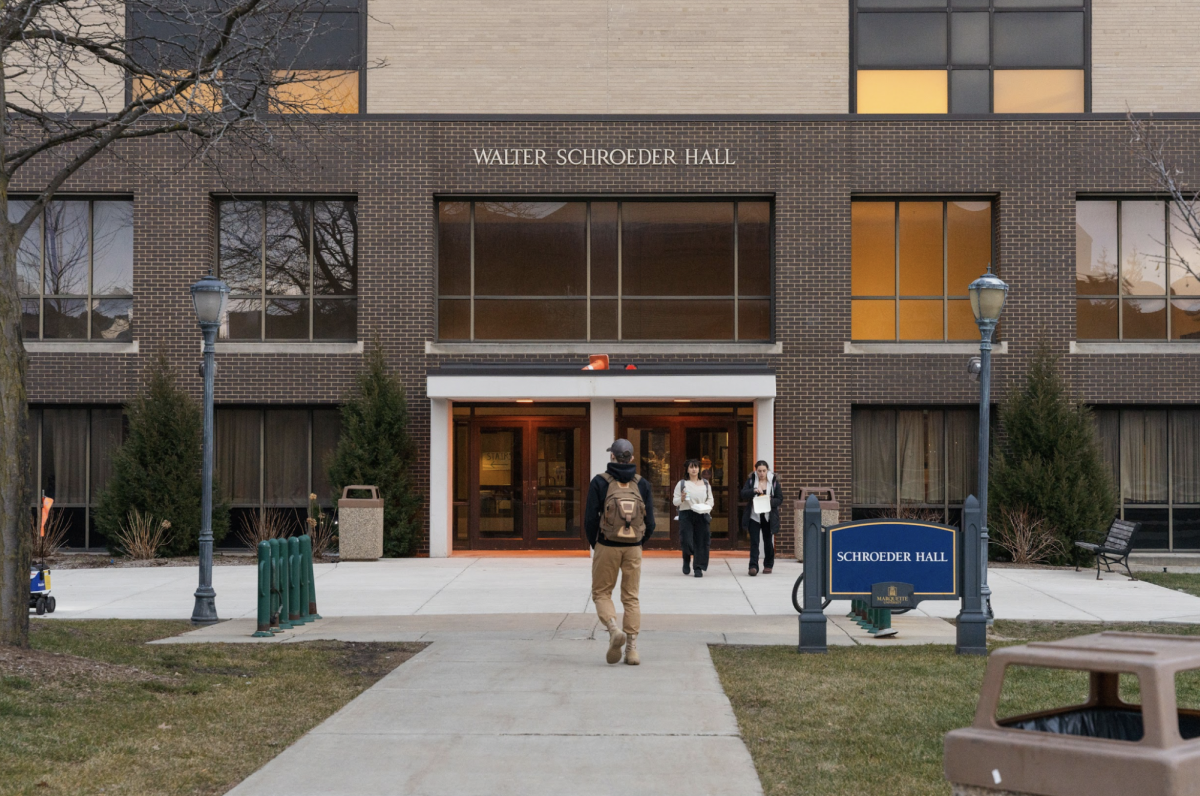As spring blossoms emerge and warmer temperatures prevail, a familiar presence has made its campus comeback: electric scooters.
Scooter brands Lime and Veo first made appearances in Milwaukee in 2019.
As time passed, and warm weather from the summer lasted into the beginning of the 2019-2020 academic year, Marquette students embraced the electric scooter trend. The scooters cost one dollar to unlock, with a 25 cents per minute charge for usage at the time.
For Marquette, it wouldn’t take long before they would enact an electric scooter ban which would not only ban electric scooters, but also electric skateboards, hoverboards, Segways and electric bicycles. The ban was announced in August of 2019, just one month after the scooters were first introduced to Milwaukee.
Marquette was not alone in banning electric scooters and other electric devices on campus. Boston College, Fordham University and Columbia University also implemented similar bans in 2019, citing safety concerns resulting from accidents caused by riders not paying attention and riding on sidewalks.
Jeffrey Kranz, assistant chief of police of the Marquette University Police Department, said the ban itself stems from campus’ layout and concern for the safety of pedestrians.
“It actually is based more on our pedestrian traffic than car traffic but it does have to do with both,” Kranz said.
Marquette’s campus is situated on Milwaukee streets including Wisconsin Avenue, which runs through campus, and 16th Street, a north-south connection for Milwaukee residents. Kranz said this, coupled with the constant foot traffic of a college campus, creates a significant safety concern which led to the ban the in 2019.
While a number of major U.S. cities have not implemented an outright ban, they have issued some specific rules. The City of Milwaukee enforced its own set of set of rules including wearing helmet and having to ride in the bike lane and not on sidewalks.
D.J. Leinus, a junior in the College of Engineering, expressed that while they believe implementing rules instead of an outright ban on a certain matter may be more appealing, it may prove challenging to adhere to due to the limited options available for riders.
“Most Milwaukee streets do not have bike lanes, so cars are pretty oblivious to you,” Leinus said. “There is no dedicated turn lanes for them (the scooters) so you have to cross the traffic lanes to make a right or a left turn which is terrifying.”
While Milwaukee does have over 160 miles of bike lanes, Leinus said that his main method of transportation involving the scooters is to get to places around campus.
Fast forward four years later since the ban was initiated and although it is still technically in effect, some students have reported that it appears to be more of a suggestion as opposed to a rule.
“I mean I have never seen anyone get in trouble for riding one,” Tim Arrington, a junior in the College of Arts & Sciences, said. “I see why the ban might be in place, but I think it’s hard for them to enforce given how many people are riding them.”
As reported by Lime, 2022 saw the greatest growth yet in terms of riders showing that they had gross bookings of 466 million dollars which was a 31% increase from the year of 2021.
For Milwaukee, since the launch in 2019, over 150,000 riders took 635,000 Lime rides have been taking showing that at least in Milwaukee, the scooters are still being utilized. Jacob, Tugendrajch, a Lime representative, said.
But even with the ban in place, Kranz said it is proving to be ineffective. Given the infrequency of complaints to MUPD and the inability to set up a zone around campus in which the scooters couldn’t activate, the rule is difficult to enforce.
“If we were able to set up something of a geofence along the lines of campus it is not something I would say not to,” Kranz, said.
For MUPD, they have yet to cite someone directly for simply riding on one of the scooters.
“If we were to see violations, it would be something we would address, but it is not something we are really targeting at this time,” Kranz said. “If I were to see someone riding one it would really depend on how they are operating it and it if it was in an aggressive manner we would maybe issue them a warning of talk with them.”
Since the beginning of the 2022-2023 academic year, there were only four calls of service regarding the electric scooters. One was for a scooter going too fast, and the other three had to do with a scooter being left laying around on campus.
This story was written by TJ Dysart, he can be reached at theodore.dysart@marquette.edu


